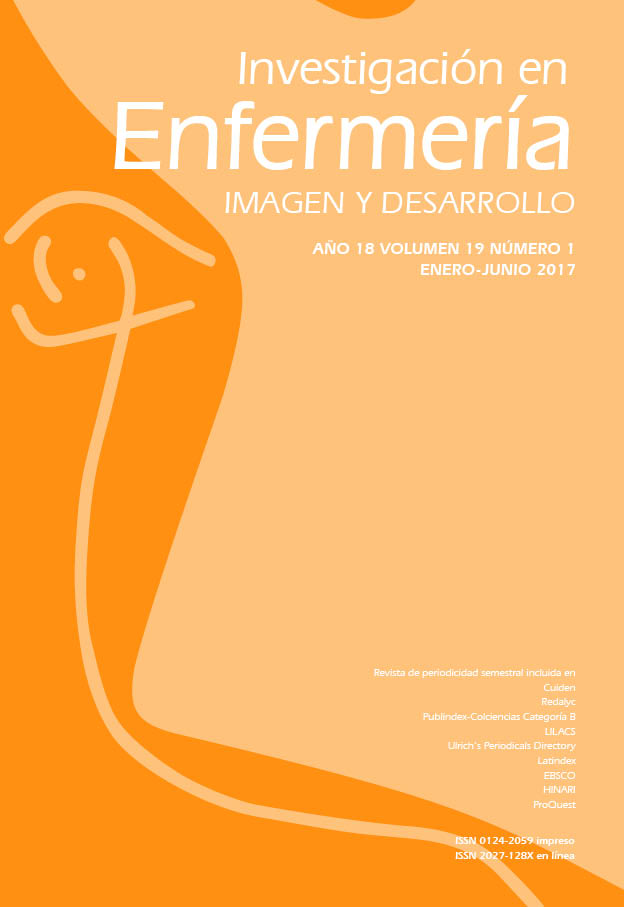Abstract
Introduction: For health professionals that seek to provide care which aligns with the values, beliefs, practices and perceived need, it is a challenge to know the heterogeneity and cultural diversity of a population group which is rapidly aging. Objective: This article describes the dynamics and health care practices of a family in poverty living with an elderly person with disabilities in the city of Bogotá (Colombia). Method: A qualitative study was developed based on the oral history of life, constructed with the participation of three members of the Vargas family. In-depth interviews total 894 minutes of recording. The collection, processing and data analysis was carried
out following the procedure proposed by the Brazilian professor and researcher José Carlos Sebe Bom Meihy. Results: Two major themes emerged: The Vargas family: Between glocal and liquid and The Vargas: between survival and struggle for dignity. Conclusions: The care occurs as an expression of family solidarity in an ambivalent and tense dynamic, with economic and emotional loads which bring deterioration in the quality of life for those who take them. The family supports in the private sphere the heavy burden of care, accumulating many more social disadvantages and in turn end up trapped in a circle of humiliation and indignity.
The journal Investigación en Enfermería: Imagen y Desarrollo is registered under a Creative Commons Attribution 4.0 International Public License. Thus, this work may be reproduced, distributed, and publicly shared in digital format, as long as the names of the authors and Pontificia Universidad Javeriana are acknowledged. Others are allowed to quote, adapt, transform, auto-archive, republish, and create based on this material, for any purpose (even commercial ones), provided the authorship is duly acknowledged, a link to the original work is provided, and it is specified if changes have been made. Pontificia Universidad Javeriana does not hold the rights of published works and the authors are solely responsible for the contents of their works; they keep the moral, intellectual, privacy, and publicity rights.
Approving the intervention of the work (review, copy-editing, translation, layout) and the following outreach, are granted through an use license and not through an assignment of rights. This means the journal and Pontificia Universidad Javeriana cannot be held responsible for any ethical malpractice by the authors. As a consequence of the protection granted by the use license, the journal is not required to publish recantations or modify information already published, unless the errata stems from the editorial management process. Publishing contents in this journal does not generate royalties for contributors.


